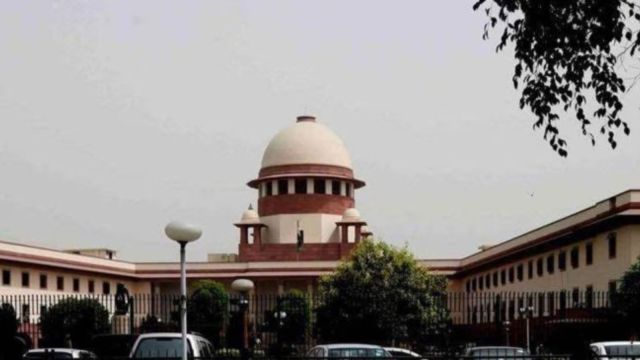SC finds driver who suddenly braked on highway primarily liable for 2017 accident, enhances compensation to victim
The Supreme Court enhanced the compensation payable to S Mohammed Hakkim, who was a third-year Engineering student in Coimbatore at the time of the accident.
 The top court held that Hakkim had a role in the accident by not maintaining the necessary distance, but held that the “root cause of the accident is the sudden brakes applied by the car driver.”
The top court held that Hakkim had a role in the accident by not maintaining the necessary distance, but held that the “root cause of the accident is the sudden brakes applied by the car driver.”The Supreme Court said Tuesday that those driving on highways should give warning signals to vehicles behind them if they intend to stop midway, while holding a car driver, who had not done so, guilty of contributory negligence, which led to a motorcyclist losing his left leg in a road accident in Tamil Nadu in 2017.
A bench of Justices Sudhanshu Dhulia and Aravind Kumar made the remarks while enhancing the compensation payable to S Mohammed Hakkim, who was a third-year Engineering student in Coimbatore at the time of the accident.
The accident happened on January 7, 2017, when Hakkim was riding on a motorcycle with his friend on the pillion. A car that was ahead of them suddenly applied the brakes, and Hakkim’s motorcycle crashed into the car and fell towards the right side of the road. A bus drove over him, and his left leg had to be amputated during treatment.
The top court held that Hakkim had a role in the accident by not maintaining the necessary distance, but held that the “root cause of the accident is the sudden brakes applied by the car driver.”
“The car insurer has taken the stand that the appellant had hit the moving car from behind and thus, the car driver is not liable. On the other hand, the car driver admitted in his evidence that he had suddenly applied the brakes as his wife was pregnant and she had a vomiting sensation. In our view, the concurrent finding that the appellant was definitely negligent in not maintaining a sufficient distance from the vehicle moving ahead and driving the motorcycle without a valid license is correct,” the SC said in its judgment.
“But at the same time, it cannot be ignored that the root cause of the accident is the sudden brakes applied by the car driver. The explanation given by the car driver for suddenly stopping his car in the middle of a highway is not a reasonable explanation from any angle. On a highway, high speed of vehicles is expected, and if a driver intends to stop his vehicle, he has a responsibility to give a warning or signal to other vehicles moving behind on the road. In the present case, there is nothing on record to suggest that the car driver had taken any such precaution,” the court said.
Liability for negligence
The Motor Accident Claims Tribunal (MACT) fixed the compensation at Rs 91.62 lakh, but reduced it to Rs 73.29 lakh after attributing 20 per cent contributory negligence to Hakkim. MACT ordered the insurer of the bus to pay the amount, while exonerating the car insurer of all liabilities.
On appeal, the Madras High Court held that since the accident occurred due to the car driver suddenly applying the brakes, he should also be made liable. The high court fixed the liability of the car driver, the bus driver, and Hakkim as 40 per cent, 30 per cent, and 30 per cent, respectively. The court also reduced the compensation payable to the motorcyclist from Rs 73.29 lakh to Rs 58.53 lakh along with interest.
The Supreme Court enhanced the compensation, and directed that Hakkim be paid Rs. 91.39 lakh along with interest at the rate of 7.5 per cent per annum from the date of filing of the claim petition. “Since both the offending vehicles (car as well as the bus) were insured at the time of the accident, the liability for the negligence of the car driver and bus driver shall be borne by them, ie, respondent no. 3 (car insurer) to the extent of 50% and respondent no.1 (bus insurer) to the extent of 30%, respectively.”
The court directed that the amount be paid to him within four weeks of the order.







